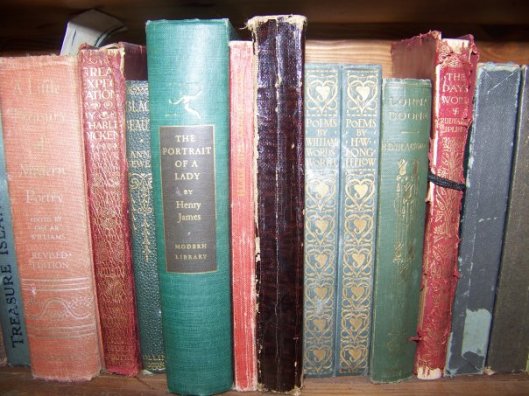Tags
Andrew Piper, books, e-readers, history of the book, reading, Sven Birkerts., theory of printed word
 In the new Literary Review of Canada, there is a review of Andrew Piper’s latest text: Book was There: Reading in Electronic Times. His premise is that when one understands the history of reading one is less liable to be “freaked-out” by its shift to electronic versions, comprehending that “we have been here before” in prior eras’ doomed prophecies about book reading. Yet, while he is not so consistently book-lauding and electronic media loathing as say a writer like Sven Birkerts was in his 1996 text: The Gutenberg Elegies: The Fate of Reading in an Electronic Age, where Birkerts laid out the “facts” relating to the effect of electronic media, namely that they are likely to “erode language, flatten historical perspective and diminish the private self,” Piper still can’t seem to entirely elevate the e-book over the printed book. Though he aims for impartiality and a balanced approach, he ends by urging us to keep reading real books, claiming that in continuing to digest printed pages, we will be better able to absorb any benefits e-reading can offer us while if we turn from the tangible book we will forget multiple modes of knowing and lose vast realms of beauty.
In the new Literary Review of Canada, there is a review of Andrew Piper’s latest text: Book was There: Reading in Electronic Times. His premise is that when one understands the history of reading one is less liable to be “freaked-out” by its shift to electronic versions, comprehending that “we have been here before” in prior eras’ doomed prophecies about book reading. Yet, while he is not so consistently book-lauding and electronic media loathing as say a writer like Sven Birkerts was in his 1996 text: The Gutenberg Elegies: The Fate of Reading in an Electronic Age, where Birkerts laid out the “facts” relating to the effect of electronic media, namely that they are likely to “erode language, flatten historical perspective and diminish the private self,” Piper still can’t seem to entirely elevate the e-book over the printed book. Though he aims for impartiality and a balanced approach, he ends by urging us to keep reading real books, claiming that in continuing to digest printed pages, we will be better able to absorb any benefits e-reading can offer us while if we turn from the tangible book we will forget multiple modes of knowing and lose vast realms of beauty.
I agree.
Lately, I have witnessed people in my family undertaking modes of e-reading and raving about it. I can quite clearly see that it makes reading more efficient, books are much easier to transport and it’s cheaper. However, none of these factors have or will convince me to do any but my most superficial or expedient reading on the screen.
Why? Just a few reasons:
1/Books are sensory. In this age of detachment, we need to feel textures of paper stock, to smell the musk of a page, to heft the spine of a book, how our hands curve around it, how it sits so perfectly in our lap when we are curled up on the couch. Our senses save us from becoming robotic. Books are one way to keep the senses alive.
2./Books are made from trees that breathed and, if they are made from recycled trees, they need not be more damaging to the environment than books made from plastic, derived from oil and all its stinking, eradicating processes, books that need to be recharged with electricity or a battery and require more wasteful cords in our already over-run with cords world.
3/Books can be such perfectly designed aesthetic objects whose gorgeousness is impossible to replicate in electronic form. The book can be passed on to one’s grandchildren if well made. It can be written in on the margins in a more permanent way if so desired. It retains the fingerprint. It valorizes the human quality of vision, the ache to collect, to retain, to gift. When we possess books, we are also possessed by them in a deep, lasting way.
4/Books, when bought, enable us to give back more directly to the writer and publisher. Authors and small presses already make little enough money and with all the free downloading occurring with the e-book it is now nearly impossible to make a living. I know it’s even worse with musicians. And with government cuts. It’s respectful to purchase and cherish books. And when one can lend books, and one can see from across the bus what another person is reading, one enlarges the feeling of community, comradeship. Identities are enhanced. Connections are formed.
Thus, by all means, read your course texts, your Harlequins, your library downloads on e-readers. Travel with them. But don’t let them devour your love of the actual, tangible, sensory, aesthetic, movingly human thing that is the real book.
on e-readers. Travel with them. But don’t let them devour your love of the actual, tangible, sensory, aesthetic, movingly human thing that is the real book.

I think we need to stop using the attractiveness of the sensory and tactile quality of the book – yes, it is there, but it is not an argument that will appeal to many people, especially the young. (The very young are a different story – they love turning pages). One quality that is rarely discussed of real, three dimensional books is that of “ownership” – you have paid for the book, it is now in your hands, then in your library to be cherished and read again. How many of us have loaned a book and never forgiven the person who did not return it? That is a sense of ownership.
LikeLike
Well i will always make the sensory argument as i think the senses are worth fighting for. Ownership, yes. As I said with the ability to pass a book down to your grandchildren….we value what we can truly hold.
LikeLike
There is nothing to compare with the feel of a new book in your hands, the sound it makes when you first crack the spine, the scent of the pages…I agree, it’s a sensory experience to be savoured as often as possible. And ownership is an interesting concept but not the main one – at least not for me – I wouldn’t lend a book I couldn’t bear to not get back, especially if it meant I’d never forgive someone (not in my nature I guess) I’m not disparaging ebooks – I enjoy them as well but I believe there is room for both. And very young kids do love real books – that doesn’t have to change I’ve noticed, if the adults in their lives encourage them to continue indulging that love affair even after they’ve become enchanted with the technological world. Most seem to welcome the idea that there’s more to enjoy, not less.
LikeLike